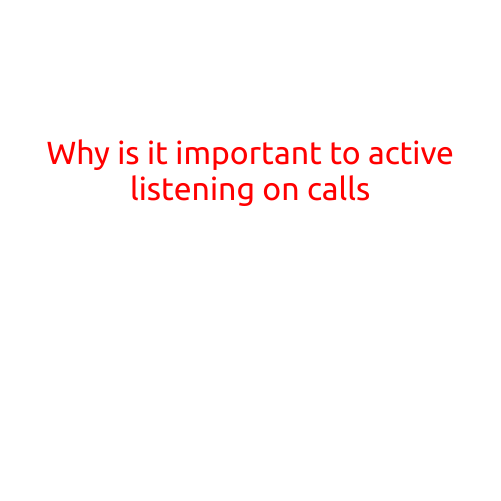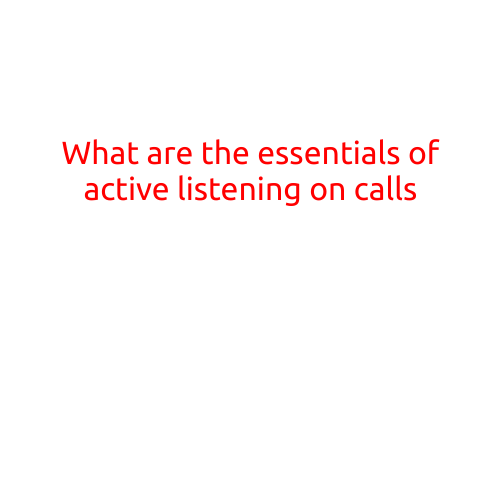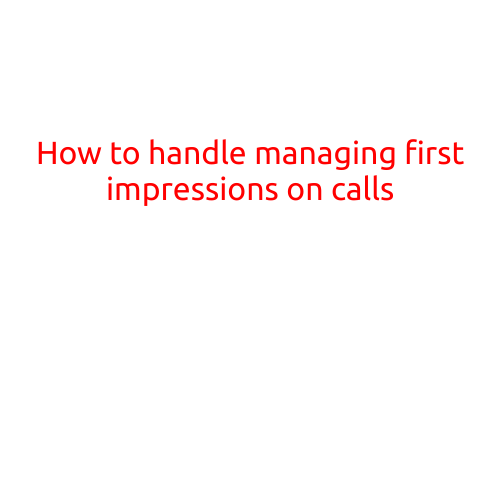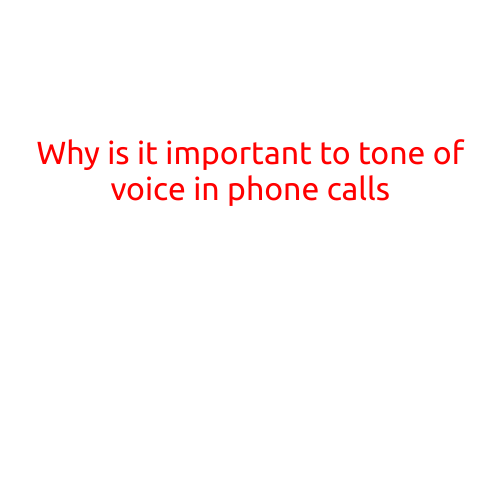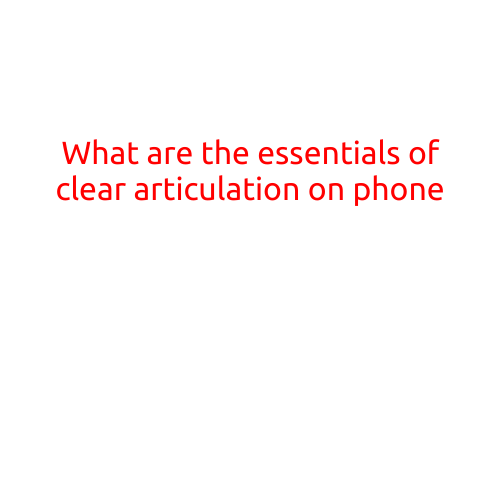
What are the Essentials of Clear Articulation on Phone?
In today’s digital age, clear articulation on phone has become more important than ever. Whether you’re conducting business meetings, making important calls, or simply chatting with friends and family, effective communication through phone calls is crucial. However, many of us struggle with articulation, leading to misunderstandings, missed cues, and even miscommunications. In this article, we’ll explore the essentials of clear articulation on phone to help you improve your communication skills and get your message across with confidence.
Positioning is Key
Before diving into the actual art of articulation, it’s essential to understand that phone calls require a specific setup. Make sure you’re in a quiet, distraction-free environment where you can focus on the conversation. Minimize background noise, find a comfortable position, and hold the phone at an optimal distance from your mouth. This will help reduce echo, background noise, and prevent poor reception.
Speak Clearly and Slowly
Clear articulation starts with a clear and slow pace. Avoid rushing through your words, as this can lead to mumbling or slurring. Instead, enunciate each word clearly, pausing slightly between sentences to allow the other person to process the information.
Pay Attention to Your Mouth Position
The position of your mouth and lips can greatly impact the clarity of your speech. Make sure your mouth is slightly open, and your lips are relaxed. Avoid pushing your tongue against the roof of your mouth, as this can cause muffled sounds. Instead, let your tongue rest on the bottom of your mouth, allowing it to move freely as you form words.
Use Your Diaphragm
Proper use of your diaphragm is essential for clear articulation. When speaking, engage your diaphragm by taking a deep breath and allowing your stomach to expand. This will help you produce a rich, full-bodied tone, making your words easier to understand.
Practice Active Listening
While articulation is crucial, active listening is equally important. Practice maintaining eye contact, nodding, and asking clarifying questions to show that you’re engaged in the conversation. This will help you stay focused and ensure that the other person feels heard.
Minimize Background Noise
Background noise can significantly impact the clarity of your articulation. Make sure you’re in a quiet environment or find methods to minimize distractions. Consider using noise-cancelling headphones, turning off the TV or radio, or finding a quiet space to conduct your phone call.
Repeat and Confirm
Finally, don’t be afraid to repeat and confirm information to ensure clarity. Repeat back key points or quotes to show that you understand, and ask the other person to confirm their understanding. This will help prevent misunderstandings and ensure that both parties are on the same page.
Conclusion
Clear articulation on phone is a skill that can be developed with practice and attention to detail. By following these essentials, you’ll be able to communicate more effectively, build stronger relationships, and achieve your goals with confidence. Remember to position yourself for success, speak clearly and slowly, pay attention to your mouth position, use your diaphragm, practice active listening, minimize background noise, and repeat and confirm information. With these skills, you’ll be well on your way to becoming a master of clear articulation on phone.
